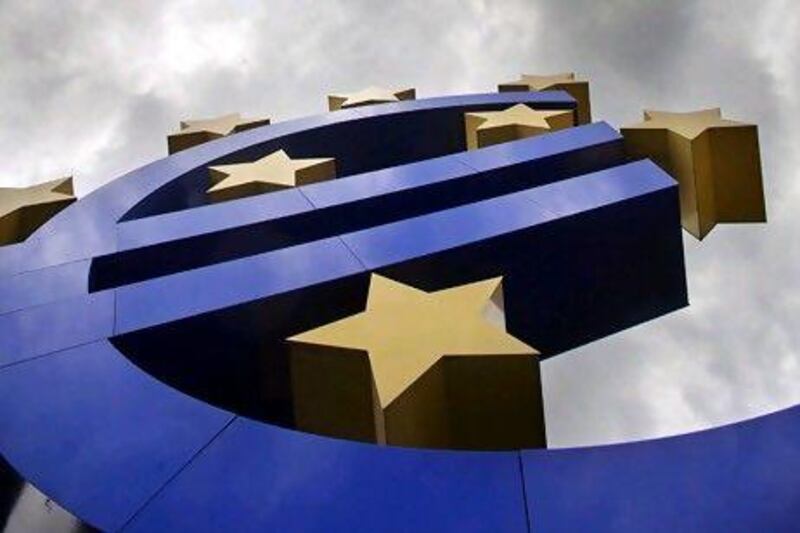Consumer and business confidence in the euro zone dropped by the most this month since the 2008 global financial downturn, underscoring shaky prospects for recovery amid growing fears of a sovereign debt default.
Yesterday's 98.3 reading on the EU's Economic Sentiment Indicator marked the sixth consecutive monthly decline and a sharp drop from the previous reading of 103.2. The long-term average for the index is about 100.
The steep drop has "added to the evidence that the euro-zone recovery has gone into reverse", said Jennifer McKeown, a senior economist at Capital Economics in London.
The index reading was consistent with annual GDP growth of only 0.7 per cent, she said. It implied that economic activity in the euro zone - the 17-country bloc where the euro is used - could contract by as much as 0.5 per cent in the third quarter. The EU's official forecast for GDP growth in the zone this year is 1.6 per cent.
"The survey … clearly suggests that [the second-quarter] slowdown was not a one-off," Ms McKeown said.
European markets traded flatafter the release of the data, which showed growing pessimism across the industrial and service sectors as well as among consumers. People in Europe are worried about their jobs and anticipate spending less, the survey said.
"This decline resulted from a broad-based deterioration in sentiment across the sectors, with losses in confidence being particularly marked in services, retail trade and among consumers," the European Commission said in a statement accompanying the data.
"Only the construction sector … recorded an improvement."
The fall in confidence is yet another worrying sign for European leaders as they struggle to contain the continent's debt crisis.
The EU and IMF have bailed out Greece and Ireland, and the European Central Bank (ECB) restarted a bond-buying programme this month.
The ECB is snapping up Spanish and Italian debt in order to stabilise prices and reduce borrowing costs for those countries following renewed concern this summer about a default.
Europe is also preparing to strengthen a financial support fund for troubled EU states, but political division in Germany over more spending on bailouts threatens to break the region's fragile unity.
As confidence sags in Europe, the US this week released data from last month showing a higher-than-expected leap in consumer spending. Spending rose at its fastest pace in five months, cheering markets and providing a rare sign of optimism for the world's biggest economy.
Ben Bernanke, the US Federal Reserve chairman, reinforced the notion of a strengthening recovery over the weekend, saying the central bank still had tools to combat an economic slowdown after reducing interest rates to almost zero.
Fears of recession intensified after markets swung wildly in the first three weeks of this month.






